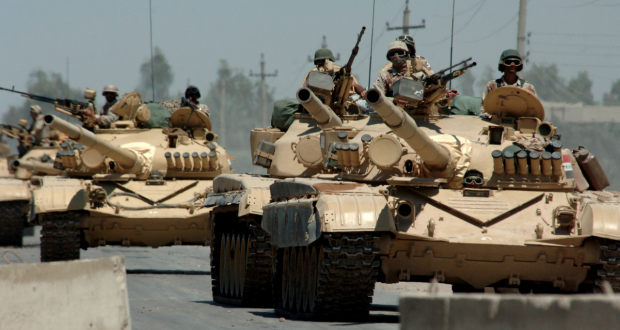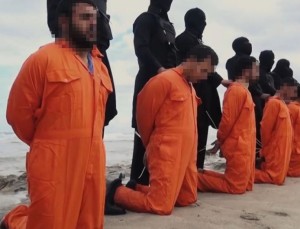The Syrian Defense Forces (SDF), Turkish militias, Kurdish forces, and U.S. personnel have begun an offensive against the ISIS stronghold in Raqqa, Syria. SDF told CNN it established a joint operations center last Saturday, and launched the “Euphrates Rage” mission on Sunday.
Raqqa is the “de facto” capital of ISIS territory, according to CNN. Its population of 200,000 is held down by roughly 5,000 militants. The city has been under ISIS control since the summer of 2014, according to CNN. According to SDF leaders, the retaking of Raqqa may take up to two months as forces seek to isolate ISIS positions in the city.
The U.S. will support operations with air cover and military advisors according to NPR. Chairman of the U.S. Joint Chiefs of Staff General. Joseph Dunford told CNN that the US and Turkey are drafting a long term plan for “seizing, holding, and governing” Raqqa provided the Euphrates Rage operation is successful.
The commencement of the Euphrates Rage came just days after Iraqi forces’ surge against the ISIS stronghold in Mosul. The offensive to recapture Mosul is the result of several months of united Iraqi, Kurdish, and U.S. effort, according to NPR. Coalition spokesman Colonel. John L. Dorrian said to CNN, “In the meantime we will continue shaping operations like airstrikes against Da’esh leaders, command and control and resources. This is the first step in a campaign that will be conducted deliberately.”
“Doing operations simultaneously with the campaign to liberate Mosul will complicate command and control for the enemy, giving them more problems to solve than their flagging command and control can manage,” he added. As with Raqqa, Mosul has been under ISIS control since summer 2014, according to Al Jazeera, which also reported dozens of decapitated bodies found by Iraqi forces.
If control of Raqqa is successfully wrested from ISIS, there may be conflict between the Kurdish and Turkmen militias. According to Reuters and NPR, Turkey is concerned about Kurdish influence spreading into northern Syria as a result of the planned takeover. The Kurds and Turks have long-standing tensions, despite joining forces against a common enemy.
Mark Lowen of BBC stated “The Kurdish participation is problematic,” because “Kurdish fighters are accused of expelling Arabs from areas they’ve taken in the north and Raqqa has an overwhelming Arab majority.”
NPR reported that the coalition stated the Arab troops involved in the operation will be key in the aftermath of the offensive, as they are “indigenous to the area and will help establish regional support for SDF operations.”


 Risdsel was one of three captives who were taken from the Oceanview Resort on Samal Island in the Philippines on September 21, 2015. The captive group was made up of Risdsel; fellow Canadian, Robert Hall; Hall’s girlfriend and Filipino native, Marites Flor; and Norwegian,
Risdsel was one of three captives who were taken from the Oceanview Resort on Samal Island in the Philippines on September 21, 2015. The captive group was made up of Risdsel; fellow Canadian, Robert Hall; Hall’s girlfriend and Filipino native, Marites Flor; and Norwegian, 




